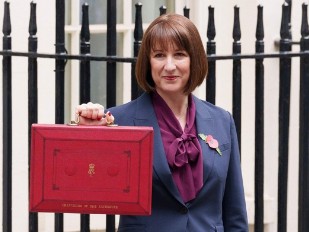
Policy & advocacy news
Chancellor announces funding for GB Energy in Budget
Last week, the Chancellor Rachel Reeves delivered Labour’s first budget in 14 years. It included a fairly significant increase in funding for the Department of Energy Security and Net Zero (DESNZ) for the next three years.
Much of how this funding will be spent remains to be seen. However, some specific measures have been mentioned.
£25m will be spent on establishing GB Energy as a company. Part of GB Energy’s role will be to deliver the Local Power Plan, which will provide funding for local energy projects to local authorities and communities. The budget also set aside £100m in 2025/6 for clean energy project development. Once established, its investment activity will be undertaken by the National Wealth Fund. This means that GB Energy will be able to use the Fund’s experience and resources to swiftly roll out a pipeline of projects.
The Chancellor also announced an initial £3.4bn for heat decarbonisation and household energy efficiency to be spent by 2027/8 as part of the government’s Warm Homes Plan. CEE has called for the government to set out a role for community energy in the low carbon heat transition and to ensure that funding for the sector goes beyond energy generation projects. We will continue to make the case that community energy can work constructively with the government to deliver on their aim to reduce fuel poverty.
More disappointingly, significant funds were also allocated to big tech, centralised, supply-side measures such as £3.9bn carbon capture, utilisation and storage. At a time when spending in many areas is constrained, it is disappointing that the government is choosing to invest heavily in technology that will not deliver cost-effective carbon savings in time, if ever. This money, if directed to local cooperative projects, including upscaling retrofit and enabling local energy projects that reduce the need for hugely expensive grid upgrades, would deliver permanent transformation, carbon and money savings and real benefit to people.
Most of the potential funding relevant to community energy has not been specifically allocated in this budget. Many of the most important decisions will be taken by DESNZ and GB Energy in the coming months. CEE will continue to make the case that they should put their resources behind communities to deliver the energy transformation we need.
